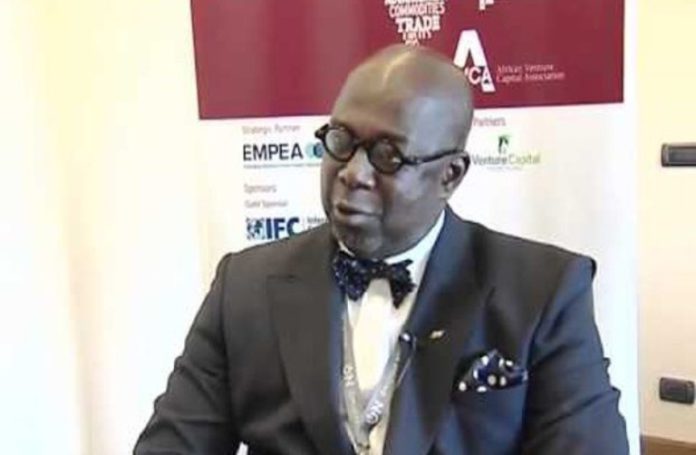The former Chief Executive Officer (CEO) of the Venture Capital Trust Fund (VCTF), Daniel Duku, and three others are yet to settle their indebtedness.
This is a year after the Accra High Court agreed to their terms and entered into settlement agreements to pay GH¢20.11 million as restitution for financial loss caused the state.
The others are a former Executive Assistant to Duku, Irene Anti-Mensah, her husband, Mr Frank Aboagye Mensah, and a former Member of Parliament (MP) for Keta who is also a former member of the Board of Trustees of VCTF (the Board), Mr Richard Lassey Agbenyefia.
Not paid
This was after they had per the agreement changed their pleas from not guilty to guilty and they were convicted on their own pleas by the court.
In that regard, the convicts were expected to finish paying their debts by the end of September 2020.
However, the Daily Graphic gathered from court documents that the former CEO and the others were yet to fulfil the terms for which their trial ended.
Duku, the Daily Graphic gathered, had only settled GH¢1 million out of the GH¢15 million debt, while Anti-Mensah out of the GH¢1.5 million had settled GH¢1.43 million, leaving a balance of GH¢70,000.
The others, Aboagye Mensah, had paid GH¢430,000 out of GH¢1.195 million with a balance of GH¢765,000 and Agbenyefia had also paid GH¢200,000 out of GH¢2.41 million, leaving a balance of GH¢2.21 million.
Amounts to settled
Per the agreement reached and accepted by the Accra High Court, Duku was expected to pay GH¢15 million to the VCTF and a fine of GH¢500,000 to the state.
Anti-Mensah was to pay GH¢1.5 million to the VCTF and a fine of GH¢100,000, while Aboagye Mensah was to pay GH¢1.195 million to VCTF and a fine of GH¢100,000 to the state.
The fourth person, Richard Agbenyefia, who later entered similar agreement, was also to pay GH¢2.41 million to VCTF.
Under section 35 of the Courts Act, 1993, the convicts were expected to fulfil the conditions set by the court for the payment of the restitution; else the court shall pass a custodial sentence on them.
The Attorney-General is yet to take a legal course of action concerning their default in the payment of the various sums.
Background
The four with two others were standing trial at the Accra High Court, presided over by Justice Anthony Oppong on various charges of allegedly causing financial loss to the state, abetment of crime, stealing, defrauding by false pretences and issuing of false cheques.
Duku and the five others are said to have caused financial loss of GH¢42.8 million to the state by giving out loans to unqualified applicants.
In July last year, three of them, Duku, Anti-Mensah and Aboagye Mensah, entered into negotiations with the Attorney General under Section 35 of the Courts Act, 1993, (Act 459), a provision that allows accused persons to offer compensation and restitution to the state for the loss, harm or damage caused the state.
Trial of two others
Meanwhile, the trial of the two others, Mr Kofi Sarpong, an investment officer of VCTF, and Ms Charity Opoku also known as Ms Charity Ameyaw, an accountant at VCTF, who pleaded not guilty to the offences levelled against them, have started.
The current CEO of the Venture Capital Trust Fund, Mr Yaw Owusu-Brempong, appeared as the first prosecution witness.
The prosecution tendered in his witness statement as their evidence in chief.
A few questions were put to him under cross-examination before the case was adjourned to Wednesday, December 1, this year.
Charges
Mr Kofi Sarpong is facing 102 charges of abetment of crime, to wit causing financial loss to the state, abetment of crime, to wit defrauding by false pretence, and conspiracy to commit crime, to wit stealing.
Ms Charity Ameyaw, on the other hand, is facing two counts of causing financial loss to public property to a tune of GH¢12.6 million and abetment of crime, to wit causing financial loss to the state.
She has been accused of facilitating Duku to cause financial loss of GH¢1.94 million by signing cheques to enable the granting of loans to unqualified applicants.

